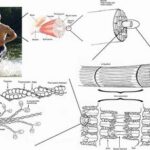Another major symptom of Chronic Fatigue Syndrome is post-exertional malaise. Post-exertional malaise in CFS is defined as exacerbation of symptoms following physical or mental exertion, with symptoms typically increasing 12-48 hours after activity and lasting for days or even weeks. Post-exertional malaise and exercise intolerance, though not unique to CFS, may help to distinguish CFS from other disorders. Here is a wonderful example from my own experience.
Every year in February and July I work for one day at a toy show that my husband and I sponsor. I have to be there at about 6:00 a.m. in the morning and I am on my feet, working in the kitchen, all day until about 2:00 p.m. Usually around 10:00 a.m. I start to feel fatigued, but I press on. The day after I will be nothing but a dish rag. It usually takes me a week to recover from one day’s worth of work.
Most people with Chronic Fatigue Syndrome are fatigued most or all of the time. Occasionally we may have short spans of time (lasting for several hours or days) during which we may feel better. During the times when we feel good we try to make up for lost time and end up crashing and burning. After experiencing this a few, or for some of us several times, the PWC may fear and avoid activity because personal experience has clearly demonstrated a link between exertion and symptoms. But most of us end up in an endless push-crash cycle of activity.
It is hard for people who do not have CFS to understand the push-crash effect of CFS. I know it has been said to me, “Why do you overdo it when you know you are just going to end up sicker and in bed again? Why can’t you just take it easy?” Most of us are geared to go when we are feeling well. When you have been sick for so long, and bedridden or unable to participate in events, when you feel well you want to do. It is just a natural human response. It is not that we intentionally want to feel sick again. We just want to be normal. I have gotten better and I have learned how to slow down and not push myself as much. But there are times when the “Superwoman Syndrome” kicks in and I think I can leap tall buildings, clean the whole house, and run a zillion errands. My body quickly lets me know it just isn’t going to happen!
Emotionally the post-exertional malaise can be a big ego blow for PWCs, especially for those who were formerly athletes or were highly active in their life and/or careers. It is very devastating to go from working 50 + hours a week as I was to having to give up my career and go on disability. It is not what I expected my life to be like.
Socially post-exertional malaise leaves many of us isolated for the same reasons as the incapacitating fatigue. Because of the fear of not knowing whether or not a social activity will send us into a CFS flare, many will avoid social events altogether, or we have to pick and choose what we can and cannot attend.
A PWC has to weigh the risks and benefits of every action we take:
– If I go shopping today, then I probably won’t be able to clean the house.
– If I volunteer at the school for one hour today, will I be able to go out to dinner with my sister/friend/husband tomorrow?
– If I clean one room a day, I can probably get the house cleaned in one week.
– Am I pushing it by trying to do all of the laundry in one day?
– If I do all of the laundry today, then I will have to go to the grocery store another day.
– If I want to go away for a weekend with my husband, then I better clear the whole week before to rest.
Tomorrow’s post in the CFS Symptoms Series will be on problems with concentration and short-term memory, word-finding difficulties, inability to comprehend/retain what is read, inability to calculate numbers and impairment of speech and/or reasoning.




